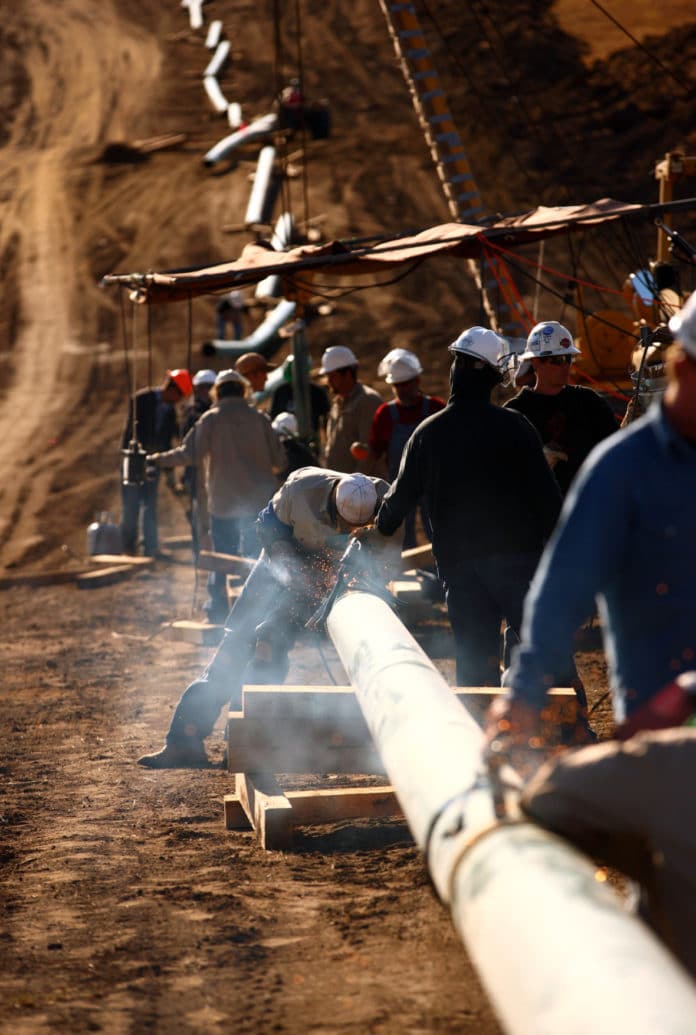For years, the pipeline partnerships that kept America’s shale oil and natural gas flowing were the darlings of the energy investment world, thanks to their high payouts and dependable, long-term contracts.
Not anymore.
The Alerian MLP Index, tracking 49 of these master limited partnerships including Enterprise Products Partners, Energy Transfer Partners and Williams Partners, is off to its worst start of a year ever. And that’s after plunging 37 percent in 2015 because of the collapse in oil prices and investors’ concerns that the partnerships can’t sustain their payouts.
A judge’s decision on Tuesday allowing a bankrupt driller to reject its pipeline contracts dealt yet another blow to the midstream companies that have been banking on their upstream customers keeping up payments to weather the worst energy industry downturn in decades. Now analysts and investors are projecting a “culling” of these once-treasured partnerships, with the smaller ones targeted as the first to go under.
“We need to see a serious shakeout, and we’re seeing it,” said Charlie Smith, chief investment officer at Fort Pitt Capital Group in Pittsburgh. “If you’re a gatherer and you only have a handful of distressed customers in a small geographic area, you could have a big problem depending on how the courts go.”
For smaller partnerships whose customers include just a handful of producers, the wave of bankruptcies coursing through the energy exploration and production space may prove impossible to withstand, Smith said. Tuesday’s bankruptcy court ruling, allowing driller Sabine Oil & Gas Corp. to get out of contracts with two pipeline operators, proves how vulnerable the midstream space may be to oil’s collapse.
In the next few months, there will be a “close inspection” of every similar agreement between drillers and pipeline operators, probably leading to more contracts getting rejected, Christopher Sighinolfi, an analyst at Jefferies LLC, said in a note to clients Thursday.
Those partnerships that have committed most of their free cash flow to paying distributions are also going to have a hard time maintaining future payouts, especially if they own lines in oil and gas basins where drilling has retreated, said Skip Aylesworth, who oversees the Hennessy Gas Utility Fund.
“If those wells shut down, or they don’t drill anymore in the fields,” Aylesworth said, “they’ll have assets with no throughput.”
Pipeline operators aren’t feeling the pain of oil’s slide as much as energy producers are, and yet they’re being punished by investors as if they are, said Rob Thummel, a managing director and portfolio manager at Tortoise Capital Advisors. He noted that some partnerships’ cash flows haven’t fallen, despite crude prices sliding, and that they’re still raising payouts at a time when investors at large are starved for yield.
“Since August, the correlation with oil has been one-to-one,” Thummel said. “Over the longer term, we expect that to stop. Investors will see they’re not tied to oil markets.”
Oil prices aside, the master-limited partnership space has simply become too crowded and needs to shrink, said Thomas McNulty, a Houston-based director in valuations and financial risk management for Navigant Consulting Inc.
“If you have too many companies chasing the same stuff, it gets crowded and there’s a logjam and you can’t feed the beast,” McNulty said. “The industry is here to stay, but sometimes you have a culling.”






